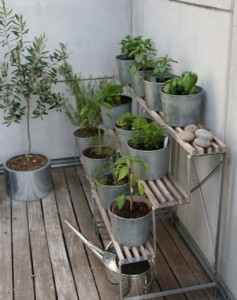My Quest To Eat Better And To Save Money On Food
Last month as I reviewed my expenses, I realized that I spend a lot of money on food. I eat out may be four to five times a month which is not much, but I found that this expense combined with what I was spending in the house was higher than I would wish it to be. I was spending more on food than I do on rent on a monthly basis.
When looking to cut expenses, we rarely look at our food cost because food is a basic need. We feel entitled to eat so we assume that this expense cannot be managed further. I however decided to study our eating habits as a family and see if there are areas we could do better, and not surprisingly, I found that we were not eating as healthily as we should, we were not eating as cheaply as we could, and frankly the foods we were eating did not taste as great as they could. In my opinion, a good eating strategy should meet the following three preriquisites:
1. The food should be cheap (of course): Unless it is a special date or an event, you really want to spend as little as you possibly can get away with on your food, without compromising on taste of course.
2. It should be healthy: Cheap food is often unhealthy; for example a bag of fries is cheaper than a salad, and white bread is cheaper than whole grain bread and so on… Cheap unhealthy food is however more expensive in the long run because you end up spending money on hospital bills, and illness wastes time (we all know time is money). However in some cases, healthy food is cheaper than unhealthy food and we should maximize on this.
3. If should be filling. When you eat filling food, you snack less and spend less money on food. By default, eating filling foods mean we eat healthier.
It is hard to find foods that maximize on all the three but my goal is to optimize on each as much as possible, and to do this I took a couple of steps. It is still too early to record the results, but I must say I am eating much better now than I did before:
1. I stopped buying groceries at the supermarket: Shopping at the supermarket is really convenient (everything under one roof), but it is bloody expensive. Sample this: 1kg of tomatoes costs at least 150 shillings in the supermarket, while it costs 90 bob at Ngara market, and may be less in other markets. I usually buy 5kgs of tomatoes every 2 weeks, meaning I save 300 bob by taking a short drive to the market. Not only do I get to buy fresh vegetables, the saving pays for the fuel there and then some.
I am also a farmer, so I took it a step further and stopped buying leafy vegetables. When I go to the farm I pick vegetables, which we blanch and store in the freezer. If you do not have a farm like I do, you can set up a small balcony farm for your leafy vegetables. A 1metre by 1 metre space can grow enough vegetables to feed your family. Talk to me about it and I will help you set up. My plan is to eventually stop buying groceries by growing everything I need to eat because this ensures that I am eating food that has been grown responsibly too.
2. I stopped snacking out: I conduct a lot of my meetings in coffee houses and I noticed that as a result I ate a lot of cake and drank many milkshakes and hot chocolates. The interesting thing is that these snacks sound cheap, but they sometimes cost a lot more than a proper meal. For example a slice of cake with a double hot chocolate (my favorite) at a coffee house will set you back may be 600-700 bob, while a full meal will cost 650 bob or less. The decision to eat full meals instead of snacks means I not only spend less, I eat less frequently, and healthier too.
3. I am working on my emotional issues around food: I realized that I eat for many reasons; I eat because I feel hungry, to pass time, because I have seen something tasty, because it is time to eat, because someone else is eating etc. The result of this is I end up eating a lot more than I need to (and most of us do). This is not only immediately expensive, it is not very healthy. Over eating makes one sluggish, overworks the body, and if you are not eating the right foods you wind up sick. Food is also not meant to meet our emotional needs. If eating food makes you happy or comforted, there are emotional issues you need to deal with. Food is meant to sustain us and keep our bodies working well.
I have been training my mind to eat only when I am hungry, and to stop eating when I am full. This is a work in progress and sometimes I fail; for example last night I ate cake with custard at 10pm. I was not hungry, but someone else said he wanted to eat cake and custard, and I didn’t have the heart to just watch him eat so I had some too. Like all habits, this will take time to form, and hopefully I will start eating more filling meals and less snacks.
4. I embraced recycling through vermicomposting. This is not a direct saving on food costs, but it is great for the environment, and once the compost is formed, it will form a great base for by balcony garden. My approach is to keep aside all vegetable wastes, and recycle them in a vermicomposting kit that I have on my balcony. The most surprising thing is that the kit does not smell at all, and the side benefit of the kit is that it produces a liquid that can be used as foliar feed for vegetables. It feels good to save the environment, and it is also really good fun to watch the worms chomp down on kitchen wastes.
5. I started cooking more: In the past my house help has been responsible for most of the cooking in my house, which saves me time to do other things, but has inadvertently resulted to me eating out and snacking more than I should because I do not like how the food tastes. I am not picky on food types, but I am very particular about how the food tastes, and I have realized it is very difficult to teach someone to cook just like you do. To fix this, I have started making dinner at least three nights a week, as opposed to previously when I would just cook on weekends.
So that is my strategy for cheaper, better eating. What proportion of your earnings do you spend on food? How do you manage your food costs? Is healthy eating something you consider when meal planning? Let us discuss in the comments section.





2 Comments